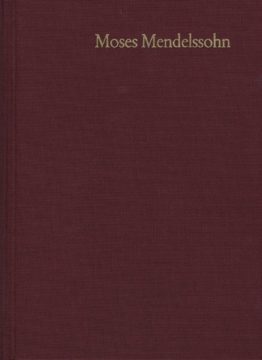In previously relatively unknown essays, the ›Kleineren Schriften II‹ (Selected Essays II) show Mendelssohn mainly as a grammarien-philosophe. His linguistic theories and studies, the translations (Plato, Shaftesbury, Rousseau among others), his own works and adaptations are all based on Mendelssohn’s belief that a human being capable of thinking can only prove his reasoning skills by means of language. As a critic, Mendelssohn was also aware that German-speaking writers and literary figures around 1750 – unlike the French and the English – lacked philosophical theories of language as well as the joy in the expressiveness of their own language. The innere Gehör (inner hearing), proven by Mendelssohn, is an achievement of the Enlightenment which paved the way for the Sturm und Drang period: from recognizing and mastering the levels of language, speech rhythms, speech melodies to the various meanings of the single spoken word, to mankind’s stummen Beredsamkeit (mute eloquence) and to the Sprachalgebra (linguistic algebra) of abstract knowledge.
- Veröffentlicht am Mittwoch 16. Dezember 1981 von frommann-holzboog
- ISBN: 9783772810138
- 369 Seiten
- Genre: Aufklärung, Hardcover, Philosophie, Renaissance, Softcover
